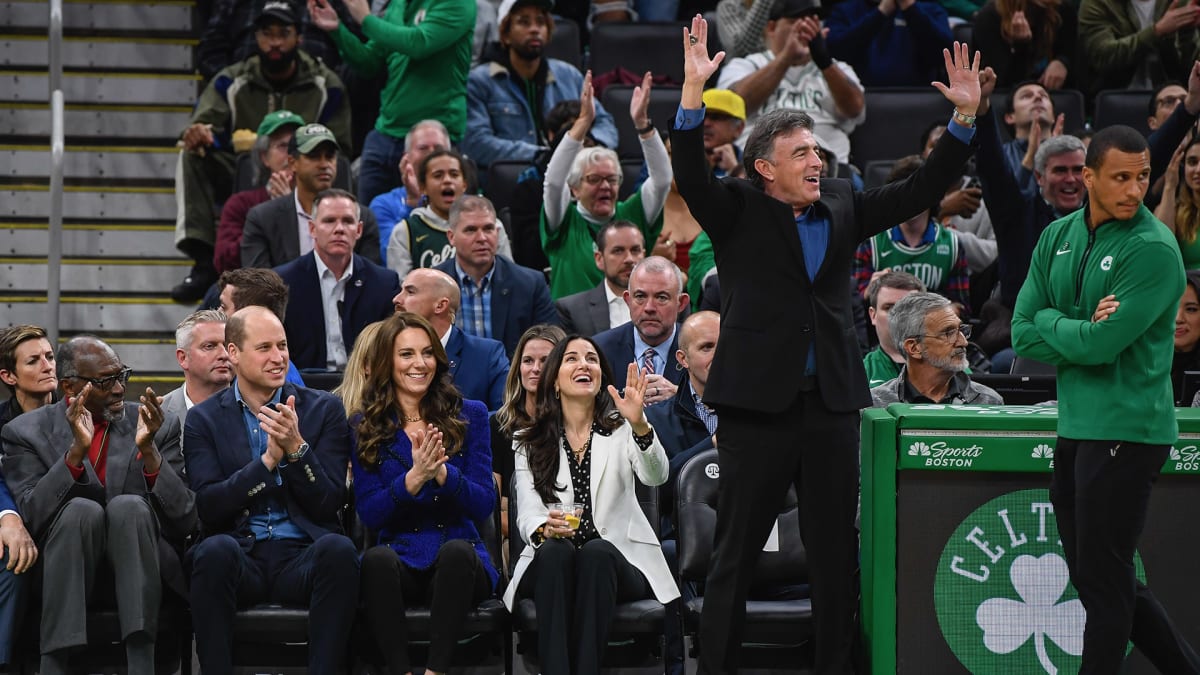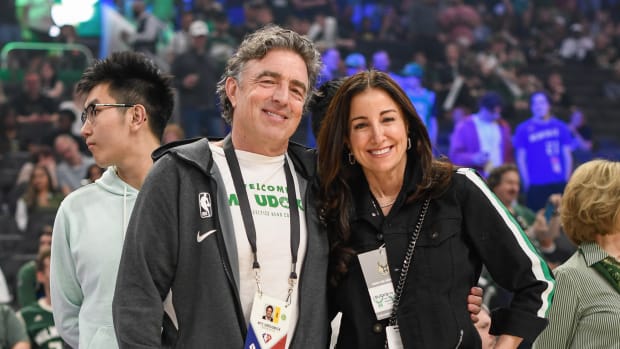
Wyc Grousbeck, lead owner of the Boston Celtics, knows a thing or two about investing.
He has worked in venture capital for almost 30 years and remains a partner at Cambridge, Mass.-based Causeway, which he co-founded.
In 2002 Grousbeck led a 20-member group, including his father, that bought the Celtics for $360 million, according to Forbes, which pegs the team’s current value at $4 billion.
He also launched Cincoro tequila in 2019 with fellow National Basketball Association owners Michael Jordan of the Charlotte Hornets, Jeanie Buss of the Los Angeles Lakers, Wes Edens of the Milwaukee Bucks and Grousbeck’s wife, Emilia Fazzalari, who is chief executive. Cincoro has sold nearly 2 million bottles to date, Grousbeck said.
TheStreet spoke with Grousbeck about individuals investing in publicly traded sports teams and about where team values, ticket prices and player salaries are headed.\
While his main goal is to win championships, Grousbeck enjoys psychic benefits from owning the Celtics, too.
Here are his comments.
TheStreet.com: Do you think it can be wise for individual investors to invest in publicly traded sports teams like the New York Knicks and Atlanta Braves?
Grousbeck: Investing in pro sports for myself has been the best business decision of my life. That’s not just for financial reasons, but for pure enjoyment and the ability to make an impact in the community.
I would be happy to see other people enjoy the possible benefits of being part of a pro team. The Celtics themselves were publicly traded on the NYSE before I organized my ownership group and took them private in 2002.
I can understand broad investor desire to participate in our teams because we offer diversification into a different type of asset class that may not be correlated with other markets.

Boston Celtics
TheStreet.com: Do you think team values will continue to rise?
Grousbeck: I think pro team valuations primarily reflect the thrill of being able to compete on a global stage. Owning a team is very enjoyable as a competitor and if you want to be able to give back to the community.
When a great team becomes available, the highest bids seem to be from those who want to own the team at almost any price, as opposed to bidding more cautiously strictly on economic grounds.
That’s the approach I took 20 years ago in leading the acquisition of the Celtics. Other commentators focus on the growing worldwide demand for major sports, which grows revenues. But I really think the distinguishing factor in the value of leading pro teams is the satisfaction of being able to run a pro team and compete for championships.
TheStreet.com: Do you think broadcasting-rights contracts will continue to rise?
Grousbeck: I think the demand for sports content will continue to increase globally. And digitization makes mass distribution easy, so the value of the media rights can continue to rise.
TheStreet.com: Do you think player salaries and ticket prices will continue to rise?
Grousbeck: The ecosystem of sports generally has a bright future, so there might be more demand for tickets and higher salaries earned by the players.
TheStreet.com: How much does the financial success of a team depend on its success on the floor? Any thoughts on that in relation to the Celtics?
Grousbeck: We are lucky in Boston: All four major pro teams typically sell out our games. The fans have been great supporters of the Celtics, and we thank them. But if a team goes years without doing well, it can definitely impact revenue from tickets, from team sponsors and from local broadcasters.
TheStreet.com: What have you liked most about being lead owner of the Celtics?
Grousbeck: Winning the NBA championship in 2008 was the absolute highlight. It was always the main goal. But I also love the relationships I have had with our players over the past 20 years.
I have met so many truly special people who have played for the Celtics. And I feel very lucky to have been part of this all with them: watching them play, being at practice, on road trips, and out in the community with them.







